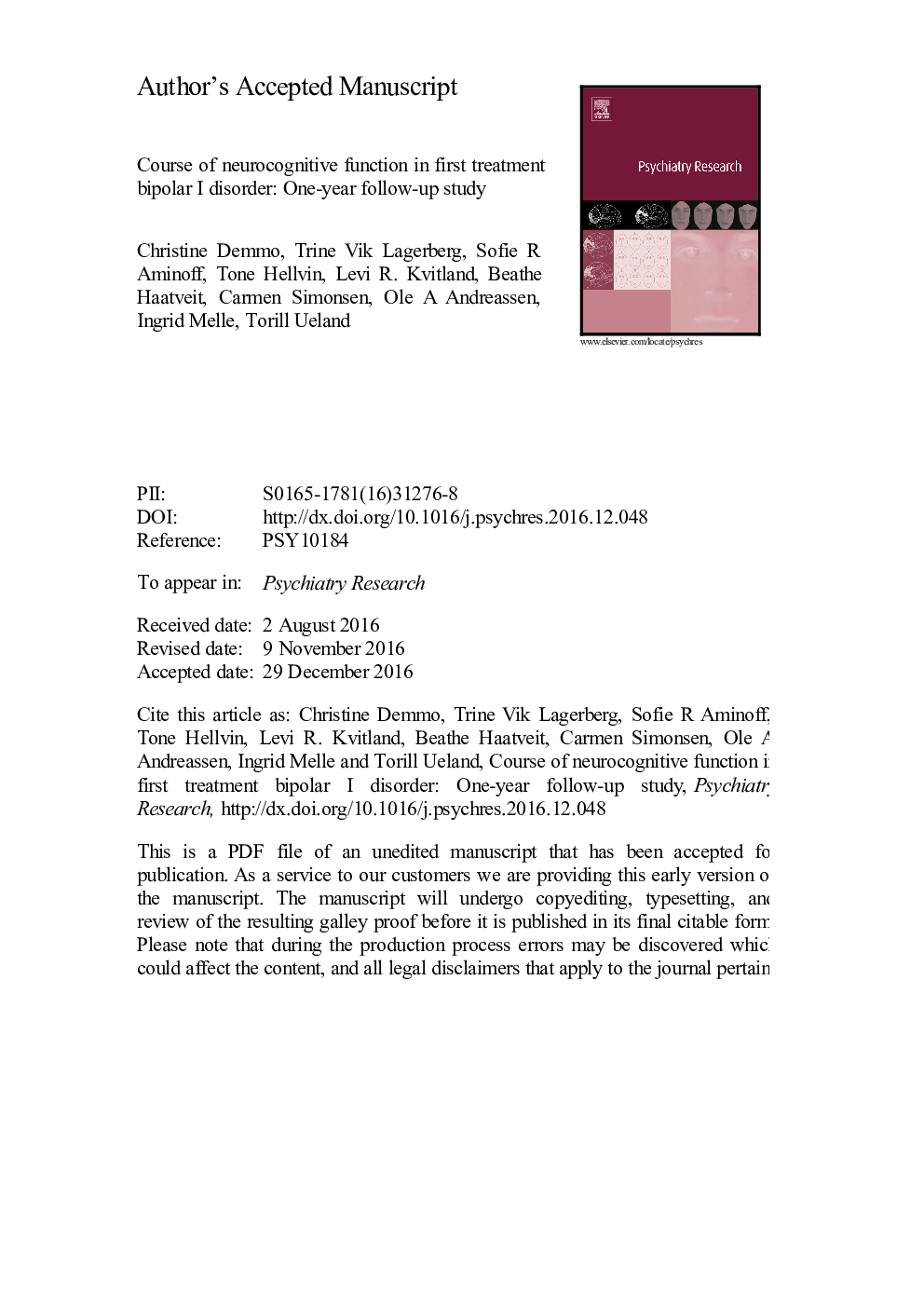| Article ID | Journal | Published Year | Pages | File Type |
|---|---|---|---|---|
| 4933738 | Psychiatry Research | 2017 | 21 Pages |
Abstract
Neurocognitive impairment has been found to be a marked feature in bipolar disorder (BD), also in the early phase of the illness. The longitudinal course of neurocognitive functioning, however, remains sparsely investigated. The aims of the study were to investigate the course of neurocognitive function in BD I, and to what degree neurocognitive change or stability is observed also on the individual level. Forty-two patients and 153 comparable healthy controls were assessed at baseline and one-year follow-up. Compared to the healthy control (HC) group BD I patients perform significantly poorer at both baseline and follow-up across all neurocognitive domains and on most neurocognitive subtests. Neurocognitive impairment remained stable for most patients from baseline to follow-up, both on a group level and when investigating individual trajectories, indicative of a relatively stable course of neurocognitive functioning in the early phase of BD I.
Related Topics
Life Sciences
Neuroscience
Biological Psychiatry
Authors
Christine Demmo, Trine Vik Lagerberg, Sofie R Aminoff, Tone Hellvin, Levi R. Kvitland, Carmen Simonsen, Beathe Haatveit, Ole A Andreassen, Ingrid Melle, Torill Ueland,
